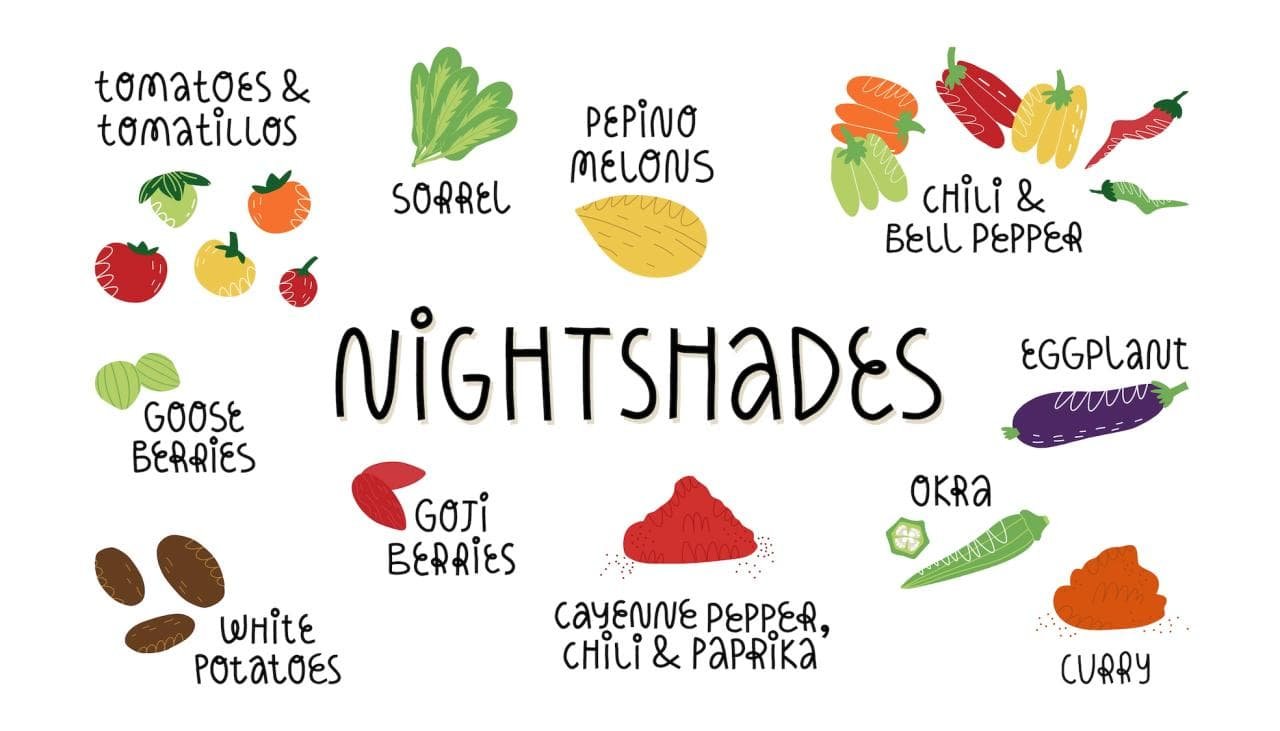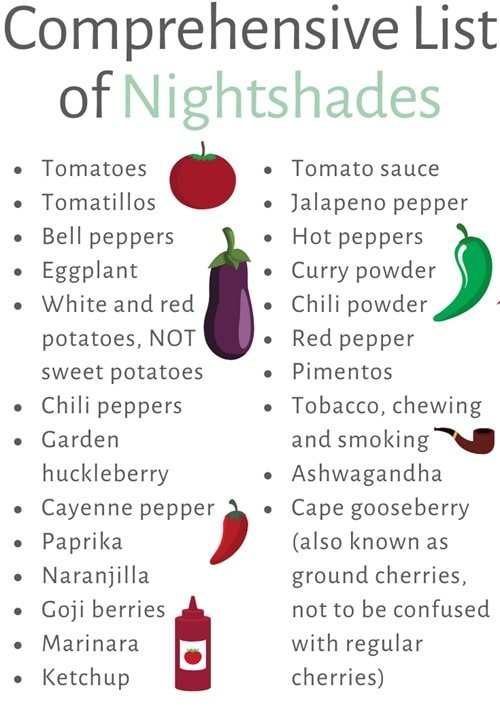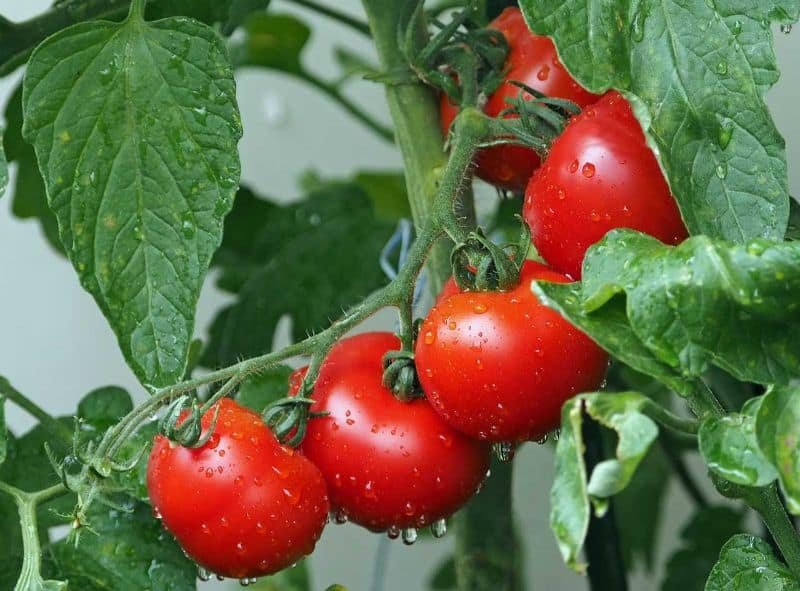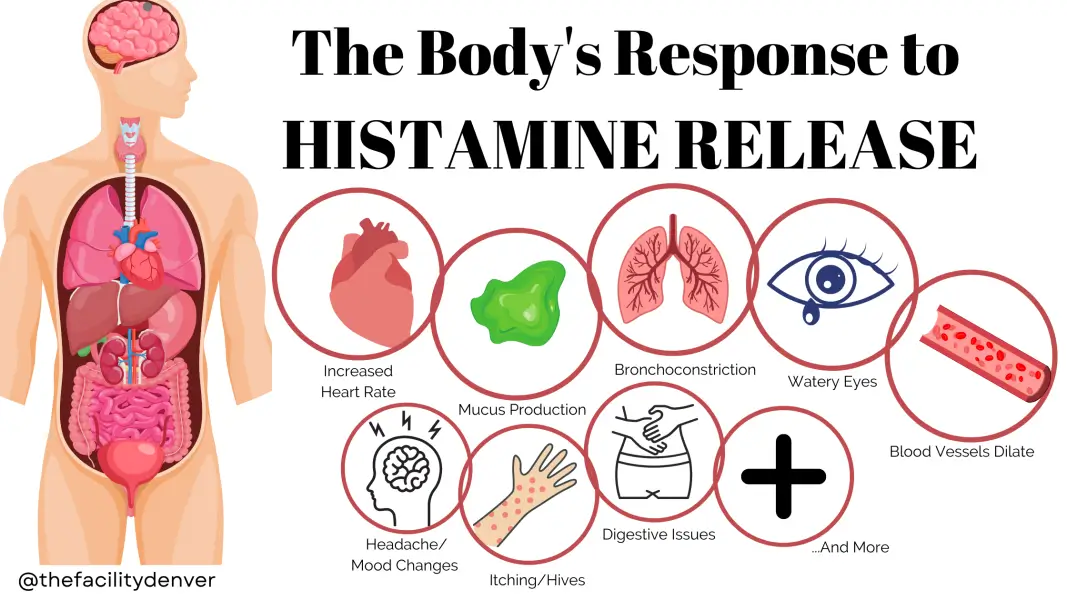Why Are Tomatoes Bad for Your Gut (Truth or Myth)?

You’ve heard it said, ‘You are what you eat.’ But could your love for tomatoes be wreaking havoc on your gut health? It’s a hot topic, shrouded in myth and truth.
Let’s peel back the layers, examine the evidence, and uncover whether tomatoes, a member of the nightshade family, are truly the villains of your gut or if they’re simply misunderstood.
Prepare to challenge what you know about this juicy fruit, and let’s find the truth together.
Why are tomatoes bad for your gut?
The potential harm tomatoes can cause to your gut stems from their content of alkaloids, lectins, and histamines.
Alkaloids, like solanine and tomatine found in tomatoes, can affect your nervous system and gastrointestinal tract.
While consuming high quantities could lead to nausea or headaches, it’s unlikely from normal tomato consumption.
Interestingly, as tomatoes ripen, their alkaloid content decreases, making ripe tomatoes a safer choice.
Lectins, proteins binding to your cell’s carbohydrates, are also present in tomatoes.
They could potentially damage your intestinal lining, sparking an immune response, or interfere with nutrient absorption.
Those with irritable bowel syndrome may find that lectins exacerbate bloating and other symptoms. To reduce lectins, consider peeling and deseeding your tomatoes, or cook them to deactivate some of these proteins.
Lastly, tomatoes are rich in histamines, chemicals involved in allergic reactions and inflammation.
If you’re histamine intolerant or have mast cell activation syndrome, tomatoes could trigger symptoms like itching or sneezing. To avoid this, opt for green or unripe tomatoes, as their histamine levels rise with ripening or fermentation.
What Are Nightshades?
Now that we’ve examined the potential gut issues linked to tomatoes, let’s dive into their classification as nightshades and what that means for your health.

According to Britannica encyclopedia, Nightshades are a broad family of plants, including about 2,300 different varieties such as tomatoes, tomatillos, potatoes, eggplant, and peppers.
One significant aspect of nightshades is their production of toxic compounds called glycoalkaloids.
Solanine, the most prominent glycoalkaloid, is found abundantly in tomatoes, potatoes, and eggplant.
These plants also contain alkaloids or lectins that can trigger inflammation and digestive issues in some individuals.
However, you need to understand that these compounds aren’t inherently harmful.
Cooking these foods can significantly reduce their glycoalkaloid content, mitigating potential side effects. Moreover, nightshades aren’t universally toxic; they only pose a problem if you have a specific allergy to them.
If you suspect that nightshades are causing you discomfort, consider consulting a doctor or try an elimination diet while maintaining a symptom diary at the same time.
This way, you can effectively monitor your body’s responses and make informed dietary adjustments.
An elimination diet is a way of finding out which foods cause you problems. You stop eating some foods for a few weeks, then reintroduce them one by one and observe how you feel. This can help you identify food allergies, intolerances, or sensitivities.
Why Did Nightshades Got A Bad Name?
Despite their nutritional benefits, you might wonder why nightshades, including tomatoes, have garnered such a negative reputation. This largely stems from the presence of solanine, a toxic compound found in certain nightshade plants.
Solanine is thought to contribute to inflammation, particularly in the context of rheumatoid arthritis.
However, it’s crucial to understand that the research hasn’t found evidence that eating nightshade vegetables directly incites inflammation.

Also, when you eat solanine, it is not as bad as when it goes into your blood another way. This is because your body does not absorb much of it, gets rid of it quickly and breaks it down into less harmful things in your stomach.
Some studies suggest that these vegetables may aggravate existing inflammation in certain susceptible individuals. This means if you’re already dealing with an inflammatory condition, consuming nightshades might intensify your symptoms.
However, this doesn’t hold true for everyone.
It’s also important to note that the precise link between nightshade vegetables and inflammation is still not fully understood by the scientific community.
In essence, the bad reputation of nightshades is largely based on theories and individual experiences, rather than concrete scientific evidence. While they might trigger inflammation in some, for others, they can be part of a healthy diet.
What are some Common nightshade plants?
In addition to tomatoes, you’re likely consuming other common nightshade plants without even realizing it.
Peppers and eggplants, for instance, are frequently included in many diets and are known for their potential gut health benefits.
But did you know that certain spices such as paprika, chili powder, and cayenne powder also belong to the nightshade family?

These spices are often used in cooking for their unique flavors, and they may also contribute to gut health.
Including a variety of nightshades in your diet ensures a range of fiber and nutrients that are beneficial for your gut bacteria.
However, it’s important to note that the overall diversity of your microbiome is more important than your specific nightshade choices. Consuming a wide range of foods, not just nightshades, can help to maintain this diversity and support your gut health.
Related: Microbiome: The Medical Revolution of the Century
Why Nightshades Are Actually Good For Your Gut Health?
Contrary to most health gurus belief, you’ll find that these plants can actually be quite beneficial to your gut health.
They’re rich in vitamins, minerals, antioxidants, and fiber, all of which contribute positively to your digestive system, for a relatively low calorie count.
Regular consumption of nightshades, as part of a balanced, Mediterranean-style diet, isn’t toxic – it’s beneficial.
These plants are a key component of a plant-based diet, which is known to improve gut health, reduce inflammation, and decrease the risk of chronic diseases.
Nightshades contribute to this by promoting a healthier gut microbiome, the community of microorganisms living in your gut.
Variety is the spice of life, and that holds true for your diet as well. Eating a diverse range of fruits, vegetables, and spices, including nightshades, helps to reduce intake of gut-unfriendly items.
This fosters a more diverse microbiome, which is linked to lower inflammation, reduced risk of chronic diseases, faster healing, improved metabolism, and even better moods.
What Research Says?
A recent study conducted at Ohio State University might provide some clarity. The research team performed an experiment on pigs, feeding one group a diet containing 10% freeze-dried tomato powder, while the control group wasn’t given tomatoes.
The results were fascinating. After just two weeks, the tomato-consuming group showed an increase in beneficial microorganisms in their gut. This increase indicates improved gut health, suggesting that tomatoes may indeed have a positive impact on the gut microbiome.
Keep in mind that this is a single experiment, and more research is needed to conclusively affirm the effect of tomatoes on gut health. Specifically, similar studies need to be conducted on humans to see if the same benefits can be observed.
What are the best Nightshades for Gut Health?
Now that we’ve looked at how tomatoes might affect your gut health, let’s explore other nightshade vegetables and their potential benefits for your gut.
- Peppers, for instance, have lower levels of potentially irritating compounds. They’re rich in gut-friendly fiber and vitamins, and are generally well-tolerated, making them a good choice for those sensitive to other nightshades.
- Then there are huckleberries, ground cherries, and tomatillos. Packed with antioxidants, fiber, and vitamins, these nightshades can significantly benefit gut health and your overall well-being.
- Ever considered potatoes? Once cooked and chilled, they contain resistant starch, a prebiotic that supports the gut microbiome. [1]
- Lastly, don’t overlook eggplants. They’re rich in prebiotic factors such as polyphenols, carotenoids, and fiber, all of which help sustain and nurture healthy gut bacteria. These factors could improve your microbiome diversity, thereby benefiting your gut health and overall well-being.
Can I eat tomatoes on a Daily Basis?
Despite what you might’ve heard, incorporating tomatoes into your daily diet doesn’t typically lead to gut health problems, unless you’re overdoing it or you are among that 1% of the population that might have a specific sensitivity.

Tomatoes, a staple in the healthy Mediterranean diet, are packed with beneficial nutrients like lycopene, vitamin C, and potassium. Consumed in moderation, they can contribute to a balanced, nutrient-rich diet.
However, like anything, overconsumption can lead to issues. Consuming excessive amounts of tomatoes can potentially cause acid reflux or heartburn due to their natural acidity.
Additionally, tomatoes are a nightshade vegetable, and some people may have a sensitivity or allergy causing adverse gut responses.
If you’re eating a tomato or two a day, like myself, and you’re not experiencing any adverse effects, then there’s no reason to worry. Your body is likely reaping the benefits of their healthful properties.
But if you’re eating them excessively or you have a known sensitivity, you might want to reconsider your intake.
What are the benefits of Tomatoes?
Considering their nutrient-rich profile, tomatoes’ health benefits are numerous and can significantly contribute to your overall well-being.
- First of all, they’re packed with essential vitamins A, B6, K, and folate, which support everything from your eyesight to your heart’s health.
- Tomatoes are particularly renowned for their lycopene content, a potent antioxidant with impressive health-boosting properties. Lycopene exhibits anticancer properties and can protect your cells from damage caused by free radicals. [2] Interestingly, your body’s absorption of lycopene improves when tomatoes are heated and dissolved in olive oil, enhancing their health benefits. [3] [4]
- Additionally, tomatoes are a rich source of other carotenoids and polyphenols that further contribute to their health-giving properties. These compounds have been linked to a reduced risk of heart disease and improved control of blood sugar levels. [5] [6]
- There’s also evidence suggesting that a diet rich in tomatoes can reduce the incidence of certain cancers. [7]
- Tomatoes can even help safeguard your skin against UV damage, thanks to the lycopene they contain. [8]
- Regular consumption of tomato products can promote cellular health, support cardiovascular wellness, and even reduce the risk of age-related eye issues like macular degeneration and diabetic retinopathy. [9]
So, next time someone tells you that tomatoes are not good for your health, just point them to this article.
What are the possible side effects if you eat too much tomatoes?
On the other hand, what happens if you overindulge in tomatoes?
First, your gut might rebel. Tomatoes are high in malic and citric acid, leading to heartburn, acid reflux, and chest discomfort.
They can even trigger bloating, irritable bowel syndrome, and other intestinal issues.
The skins and seeds, which are tough to digest, can exacerbate these problems.
Overeating tomatoes might even result in diarrhea, particularly if you’re intolerant to them.
But the potential side effects don’t stop there. For men, a surplus of tomatoes can lead to an overproduction of lycopene, causing discomfort during urination, prostate gland issues, and even prostate cancer.
Histamines found in tomatoes can cause allergic reactions like coughing, sneezing, and skin irritation. They’re also high in calcium and oxalate, which could contribute to kidney stones. Further, compounds like histamine and solanine can trigger arthritis and joint pain.
Overconsumption of tomatoes, particularly canned ones high in sodium, can increase your risk of cardiovascular diseases. Excessive sodium can lead to high blood pressure and heart problems.
Lastly, too many tomatoes can cause lycopenodermia, a condition characterized by deep-orange skin discoloration.
How to enjoy tomatoes without harming your gut?
Even with these potential side effects, you don’t need to banish tomatoes from your diet; it’s all about moderation and preparation methods to ensure they’re gut-friendly.
Opting for organic tomatoes can reduce your exposure to pesticides and boost your intake of antioxidants. Ripe, red tomatoes are superior to green or yellow ones, boasting higher lycopene levels and fewer alkaloids.
If you struggle with digesting lectins or have Irritable Bowel Syndrome (IBS), simply peel and deseed your tomatoes.
This minimizes any potential digestion issues. To improve their prebiotic fiber content and make them more gut-friendly, consider cooking tomatoes or processing them into sauces or juices.
However, if you have histamine intolerance or mast cell activation syndrome, it’s wise to avoid fermented or canned tomatoes.
Instead, enjoy fresh tomatoes alongside healthy fats like olive oil or avocado, which enhance the absorption of lycopene.
How many tomatoes are too many?
There is no definitive answer, but some experts suggest that consuming more than 10 servings of tomatoes per week may be excessive. A serving of tomatoes is about half a cup of raw or cooked tomatoes, or one medium tomato.
How can I tell if I have histamine intolerance?
If you’re regularly experiencing the above-mentioned symptoms after consuming tomatoes or other high-histamine foods, it’s quite possible that you might’ve histamine intolerance.
This condition is a result of your body either producing too much histamine, a crucial compound involved in immune responses, or lacking the efficiency to break it down properly.

The symptoms of histamine intolerance can vary greatly among individuals but often involve issues with digestion, like abdominal pain, bloating, or nausea.
You may also suffer skin problems such as hives, itching, or eczema, or experience headaches, nasal congestion, fatigue, or mood changes. More severe symptoms include low blood pressure, rapid heartbeat, chest pain, facial swelling, and in rare cases, anaphylaxis.
It’s important to note that these symptoms can also be indicative of other health conditions. Therefore, if you suspect you have histamine intolerance, it’s crucial to consult with a healthcare professional.
They can help you navigate through a process of elimination, observe your symptoms and dietary habits, and potentially conduct testing to confirm the diagnosis.
Frequently Asked Questions
Bottom Line
While tomatoes, part of the nightshade family, often get a bad rap, they’re actually beneficial for gut health, rich in vitamins A, C, and K.
However, consume in moderation, as excess can lead to side effects like acid reflux. So, savor your tomato dishes, but remember to listen to your body and adjust your intake accordingly.
Read Also
9 Excellent Health Benefits of Tomato Soup
